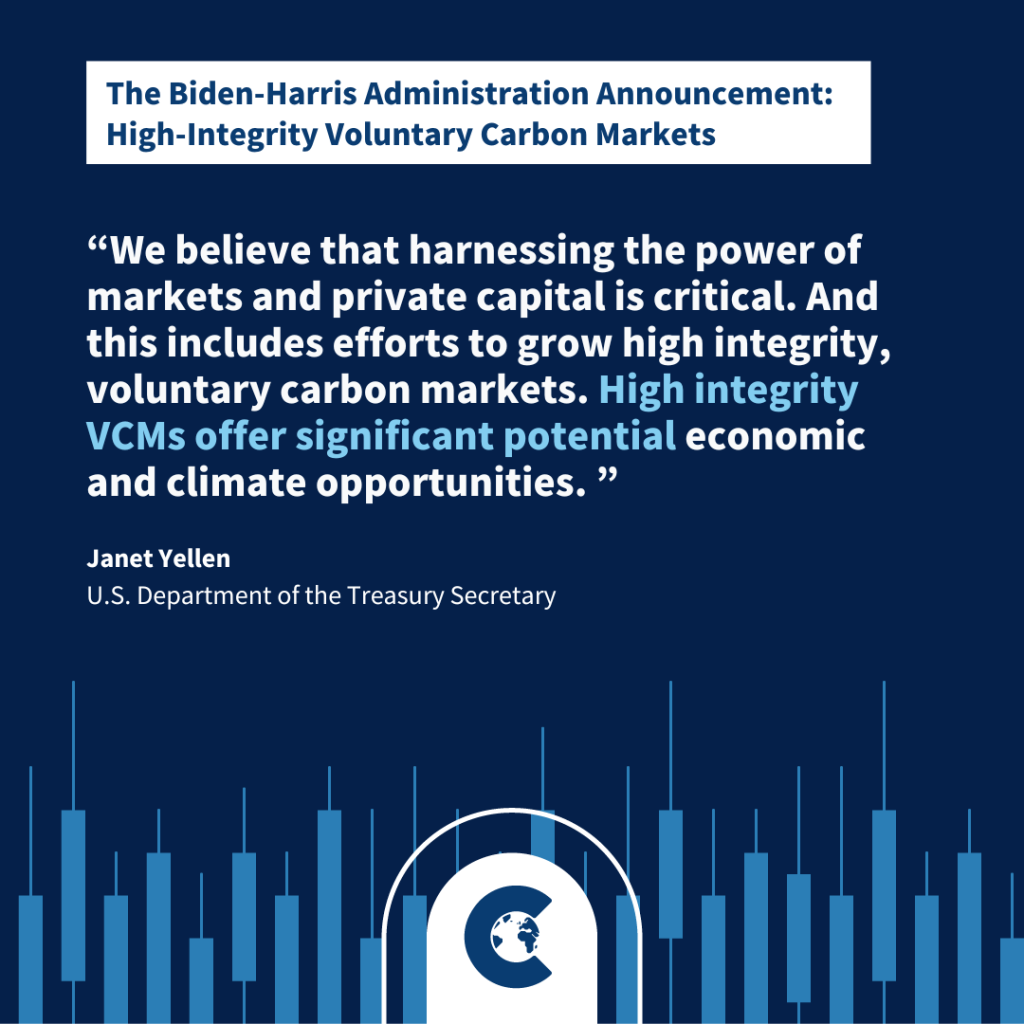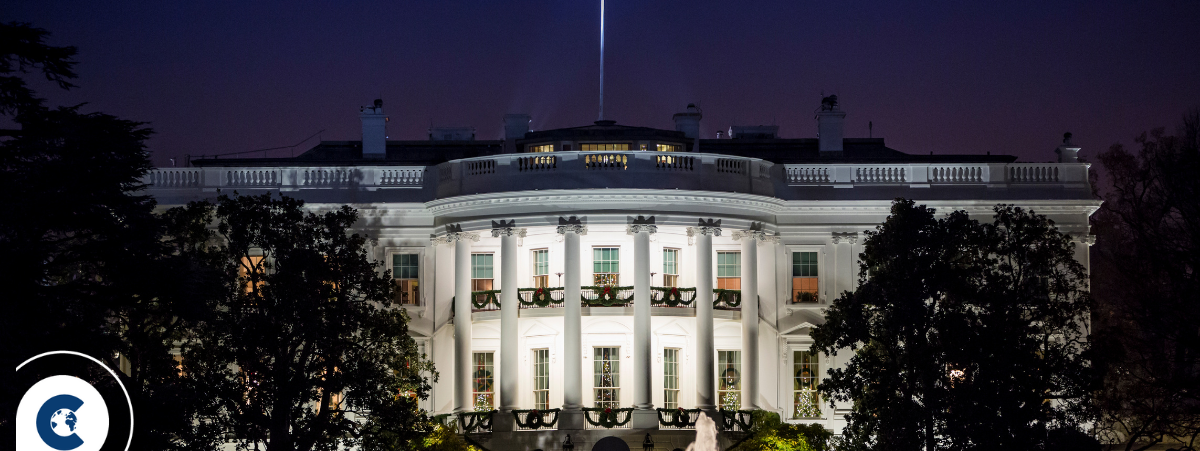The Biden administration is pushing for high-quality carbon markets to combat climate change.
The fight against climate change requires the world’s strongest resources to take action and the Biden Administration is setting its sights on a potential game-changer: Voluntary Carbon Markets (VCMs). As many of you will already know, the VCM allows companies and organisations to offset their carbon emissions by purchasing credits from projects that reduce or remove greenhouse gases from the atmosphere. VCMs have the potential to become a powerful tool for accelerating climate action, and the White House’s current focus on strengthening them is a positive sign for the industry’s future.
How can the voluntary carbon market help address climate change?
VCMs offer a compelling way to channel private capital towards innovative solutions. Companies can invest in projects like renewable energy or forest conservation through carbon credit purchases, directly supporting the development and deployment of these critical technologies.
The beauty of VCMs lies in their versatility. They can fund a wide range of climate projects, from reducing agricultural emissions to promoting sustainable forestry practices. This comprehensive approach ensures a broader impact on climate change mitigation.
There’s an added social benefit as well. VCM projects can create jobs and economic opportunities in local communities, while simultaneously protecting natural ecosystems and improving air quality.
What is the US government doing about climate change?
In their recent statement, The White House acknowledges that VCMs face challenges, particularly regarding the quality of some carbon credits. To address this, the administration is taking concrete steps:
Setting Clear Standards for Carbon Credits: Developing robust standards ensures credits represent genuine emissions reductions. Creating a trustworthy market environment.
Investing in Carbon Removal Technologies: Increased investment in technologies that remove carbon dioxide from the atmosphere will expand the supply of high-quality tradable credits, further fueling the VCM market.Preventing Fraud and Abuse: Regulatory efforts aimed at preventing fraud and abuse will foster a stable and reliable market, where businesses like ClimateTrade can operate with confidence.
What is a high-quality carbon credit?
A high-quality carbon credit represents a measurable, verifiable, and additional reduction or removal of greenhouse gas emissions from the atmosphere. Here’s a breakdown of the key characteristics:
Measurable: The emissions reductions associated with the project that generated the credit must be quantifiable. This ensures transparency and allows for accurate assessment of the climate impact.
Verifiable: Independent third-party verification is crucial. This confirms that the claimed emissions reductions actually occurred and were not due to other factors. Reputable verification bodies ensure the legitimacy of the credit.
Additional: The emissions reductions achieved by the project wouldn’t have happened anyway. This ensures the credit represents a real and positive impact on the climate.
Permanent: Ideally, the emissions reductions achieved by the project should be long-lasting. For example, reforestation projects that store carbon in trees for decades would generate higher quality credits compared to projects with temporary effects.
Leakage Avoided: The project shouldn’t lead to increased emissions elsewhere. For instance, a project that protects a forest might be disqualified if the saved trees are simply logged in another location.
In addition to these core aspects, high-quality carbon credits may also consider:
Social and environmental co-benefits: Does the project generate positive social or environmental outcomes alongside emissions reductions? For example, does it create jobs in local communities or improve biodiversity?
Alignment with broader sustainability goals: Does the project contribute to achieving other environmental objectives besides climate change mitigation?
The Biden Administration and other stakeholders are working to establish clear standards for high-quality carbon credits. Organisations such as the integrity council for the Voluntary Carbon Market.
The Integrity Council’s Core Carbon Principles (CCPs) establish the first independent global benchmark for high-integrity carbon credits, ten fundamental principles that create real, verifiable climate impact, based on the latest science and best practice. CCP-labelled carbon credits are designed to build trust in the market and enable it to scale.
This will help ensure the integrity of the Voluntary Carbon Market (VCM) and give companies and organisations confidence when purchasing credits to offset their emissions.









